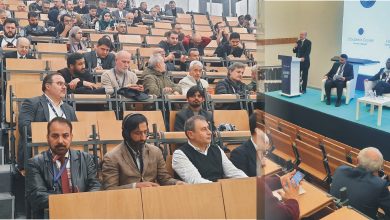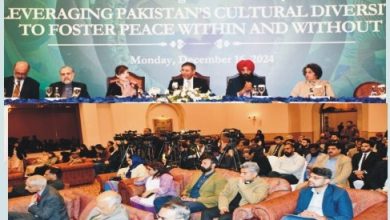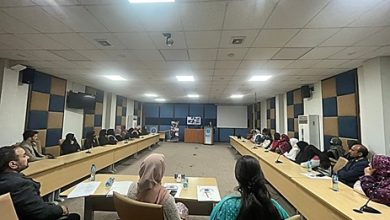UAJK seminar highlights significance of Kashmir Solidarity Day
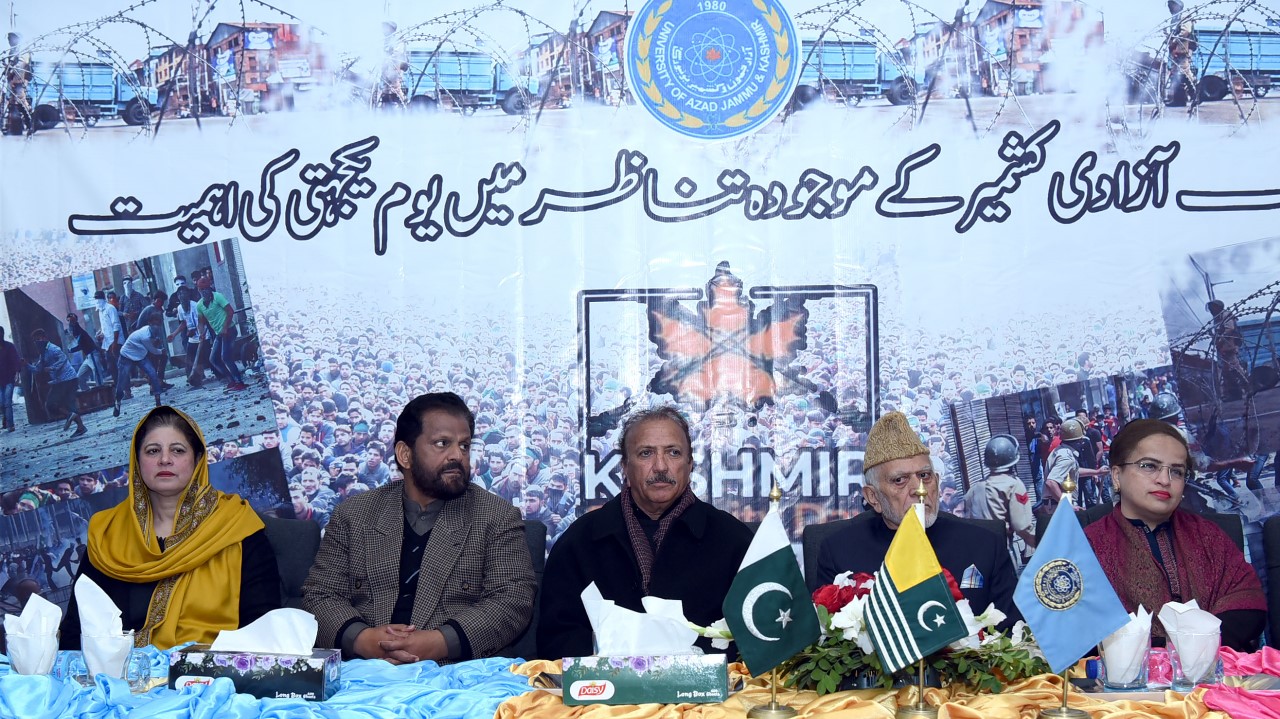 Muzaffarabad: Speakers at a seminar held in connection with Kashmir Solidarity Day at the University of Azad Jammu and Kashmir (UAJK) highlighted the significance of February 5 the Kashmir Solidarity Day, as a beacon of hope for the oppressed people of occupied Jammu and Kashmir who are enduring the worst Indian aggression.
Muzaffarabad: Speakers at a seminar held in connection with Kashmir Solidarity Day at the University of Azad Jammu and Kashmir (UAJK) highlighted the significance of February 5 the Kashmir Solidarity Day, as a beacon of hope for the oppressed people of occupied Jammu and Kashmir who are enduring the worst Indian aggression.
According to Kashmir Media Service, addressing the seminar titled “The Importance of Solidarity Day in the Current Context of Kashmir Freedom Movement”, the speakers reaffirmed unwavering support for the Kashmiri people in their struggle for right to self-determination, echoing the sentiments of solidarity from the governments of Pakistan and Azad Jammu and Kashmir, alongside the resolute backing of the Pakistani populace and just nations worldwide.
Former Chief Justice, Justice (retd) Syed Manzoor Hussain Gillani, alongside esteemed dignitaries including Vice Chancellor Prof Dr Muhammad Kaleem Abbasi, Amir of Jamaat-e-Islami Azad Jammu and Kashmir and Gilgit-Baltistan Dr Muhammad Mushtaq, Additional Chief Secretary AJK Ms Mudhat Shahzad, Executive Director of the Center for International Strategic Studies (CISS) AJK Dr Asma Shakir Khawaja, and Additional Registrar Sardar Zafar Iqbal were among the prominent voices lauding the relentless spirit of Kashmiris in their pursuit of freedom from the shackles of Indian occupation.
Justice (retd) Syed Manzoor Hussain Gillani emphasized the enduring nature of the Kashmir freedom movement, drawing parallels to global freedom struggles while highlighting the continued resonance of the Kashmir Solidarity Day. He commended the courage and resilience of the Kashmiris in the face of coercive Indian tactics and called for concerted efforts to amplify their voices through modern strategies and education.
Prof Dr Muhammad Kaleem Abbasi underscored the historical context of Kashmiris’ struggle, emphasizing their indomitable spirit and the imperative of nurturing the flame of freedom through engagement and awareness. He proposed collaborative efforts to empower youth in advocating for the Kashmir cause, offering the university’s platform for dialogue and action.
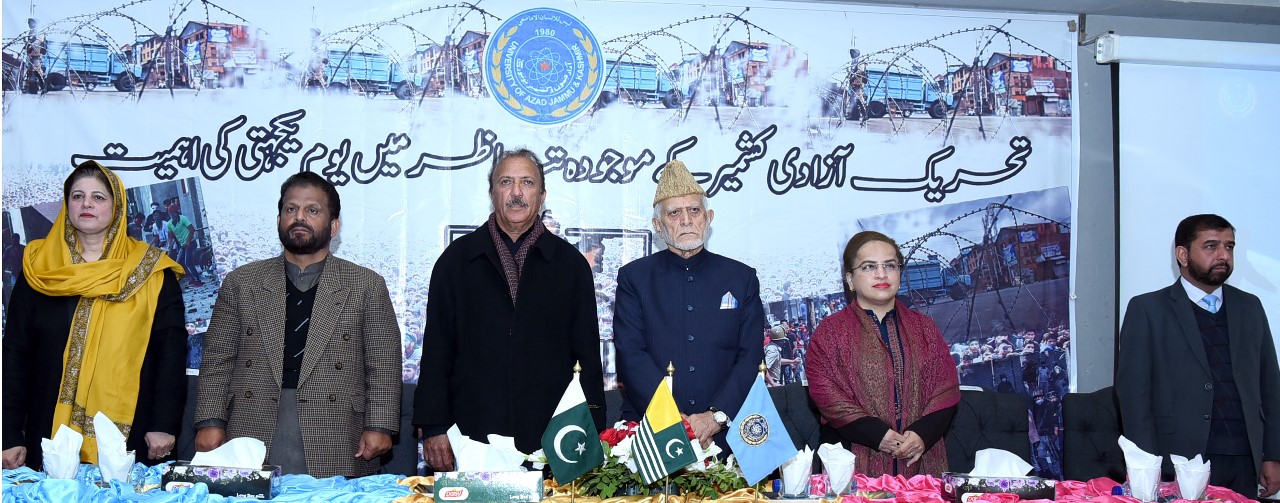 Dr Mushtaq Ahmed reiterated the message of solidarity, urging sustained support for the Kashmiris’ right to self-determination.
Dr Mushtaq Ahmed reiterated the message of solidarity, urging sustained support for the Kashmiris’ right to self-determination.
Mudhat Shahzad, drawing from personal experience, highlighted the intimate ties between Kashmir and Pakistan and emphasized the shared identity and responsibility.
Dr Asma Shakir Khawaja condemned the ongoing Indian atrocities in illegally occupied Kashmir and called for a unified pledge to amplify the voices of the oppressed Kashmiris through social media and advocacy.
The seminar concluded with a documentary presentation on occupied Kashmir. It garnered appreciation from attendees comprising principal officers, deans, faculty, and students.






